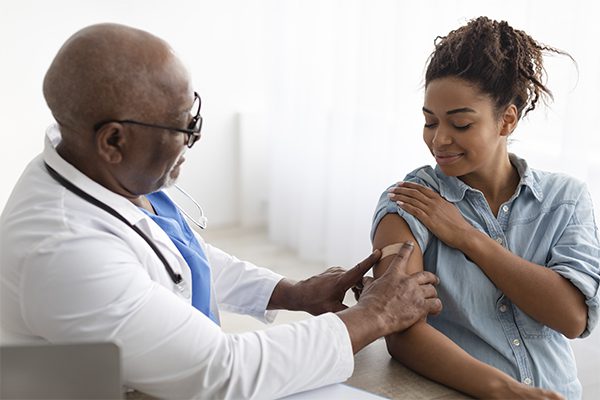Care Beyond The Walls®
Primary Care’s Role in Providing Mental Health Support to First Responders
First responders hold the unique occupation of running toward an emergency, not from it. Their jobs fundamentally require exposure to stressful, crisis situations on a daily basis. What most of us would consider the worst possible scenarios in our own lives–fatal car accidents, decimating fires, gun violence–make up the common reality of our first responders.
Although these brave men and women are skillfully trained to perform the job at hand, it does not prevent the inevitable mental strain that can result from repeated exposure to traumatic events. One study found that an estimated 30 percent of first responders develop behavioral health conditions including, but not limited to, depression and post-traumatic stress disorder, as compared with 20 percent of people in the general population. The very nature of their occupation necessitates a closeness to trauma that no single person should ever bear alone.
Helping those who help us during our most devastating circumstances
At Proactive MD, we have the privilege of providing occupational health services to first responders and other high-risk workers at over 30 Health Centers across the country–this includes behavioral health. Our care teams are trained in behavioral health and can provide diagnoses and ongoing treatment for behavioral health patients.
We asked physician and VP of Clinical Development & General Counsel, Philip Eskew, DO, about his firsthand experience encountering the behavioral health needs of first responders. He said, “I am happy to serve the first responders that have dedicated their lives to serving other members of the community. These roles place them at risk of harm. Many of my police officer and firefighter patients suffer from post-traumatic stress disorder. PTSD can happen after they witness the aftermath of an emergency or actively participate in stopping an emergency. Many of my patients also have anxiety and depression.”
When asked about supporting and treating behavioral health in a primary care setting, he said, “At Proactive MD we take the time to discuss mental health issues in detail, make the appropriate diagnosis, and start patients on treatment. In some cases, we refer the patient to a psychiatrist as well, and in other cases we are able to manage their symptoms without the need for a psychiatry referral. We meet patients where they are.”
Being a listening ear to our first responders
At our flagship Mauldin Health Center in South Carolina, we serve hundreds of first responders while serving over 1000 public servants just in Upstate South Carolina alone. To understand the magnitude of what first responders face every day, we wanted to speak with one of our very own first responder patients.
We had the pleasure of interviewing Chief Wesley Williams who has been the Simpsonville Fire Department Chief for 13 years. With almost 29 years in his line of work, Chief Williams has experienced the physical and mental dangers of the job through his men and firsthand.
What things in your line of work affect your men mentally?
“There is a lot of mental strain on both the EMS side and the fire side. The worst cases our guys see are the deaths of infants and children; it takes a toll. If it's a situation where the child's been abused, responding to that also takes a toll. I’ve responded to a bad car wreck before, and as a father, when the deceased person in the car reminds you so much of your daughter or your son, it’s a heavy weight and not something you can easily forget.
Dealing with death is very hard, and we've lost employees through the years who just couldn’t deal with it. We've had some to resign, and we've had some to have needed counseling. Normal people don't see the things we see on a daily basis, and it's probably a good thing that they don't.”
What do you wish more people understood about the firefighter profession when it comes to its effects on your physical and mental health?
“They’ve seen so much. They have a caring compassion for what they do, and they are very humble individuals. When it comes down to it, they're there to do a job and try to help you in the best way they can. A lot of them don't seek out recognition or credit for what they do; they just want to do the best they can for you and be there to comfort you in your time of need.”
How does access to primary care with Proactive MD help support the health needs of firefighters?
“It's very convenient to visit Proactive MD. When we’re on duty, we know that we can quickly go to the Health Center if we’re dealing with something. They are very responsive to our needs. It could be anything from a simple sinus infection to an injury–they make it a priority to see our guys as quickly as possible. On the mental health side of things, if we have a guy who is struggling with something like anxiety or depression and may need to talk to a provider or get a referral to a mental health specialist, we know that Proactive MD would be there to fill that role and say ‘Okay. We can help you. We can take care of that, or we can refer you to a specialist who’s better suited for your needs.’ They take action right off the bat and get our guys the help they need–that’s very important to us.”
We’re incredibly proud to serve such a brave group of men and women the comprehensive and compassionate care they deserve. We owe it to our first responders to provide healthcare that is as responsive, experienced, and proactive as they are.
To learn more about the Proactive MD difference, visit our website: https://proactive-md.com/
Sources:
Sign up to get the latest news and insights from Proactive MD.


